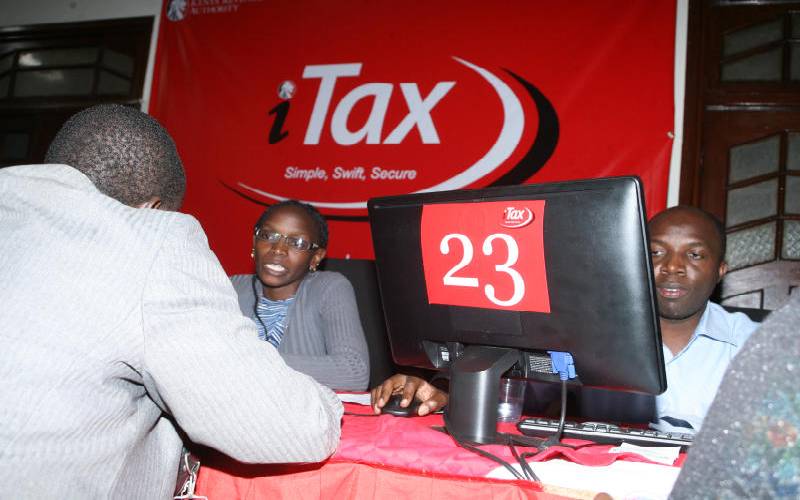Increased Discomfort from Housing Tax as KRA Targets Gross Pay.
In a move that has sent shockwaves through the corporate landscape, the Kenya Revenue Authority (KRA) has issued a groundbreaking directive that has far-reaching implications for both employees and employers. The controversial directive mandates that employers calculate the deduction for the recently introduced housing levy based on employees' gross pay, rather than solely on their basic pay. This change not only reveals hidden financial pain for workers but also has the potential to reshape the dynamics of the Kenyan workforce.
The housing levy, a 1.5 percent deduction for both employers and employees introduced through the Finance Act of 2023, is aimed at generating funds for the Affordable Housing Fund. Initially, allowances such as hardship, travel, airtime, and car allowances were left out of the calculation when the initial Finance Bill was drafted. However, the KRA's new directive changes the game, as these allowances are now required to be factored in during the monthly computations for the housing levy. This sudden alteration caught many off guard, leaving human resource departments scrambling to adapt to the new regulations.
The ripple effect of this directive is profound. Employees across various sectors, including high-ranking government officials and MPs, who enjoy substantial allowances will be some of the hardest hit. For them, the days of reduced deductions are over. Instead, they will now see a larger chunk of their earnings diverted towards the affordable housing agenda. What's more, employers are mandated to match their employees' contributions each month, burdening them with additional financial responsibilities.
This development highlights the nuanced complexities that arise when a major tax change is introduced. Employers who were already in the process of preparing payrolls based on basic pay have been caught off guard by the sudden shift in requirements. The change in the calculation of the housing levy places an additional strain on companies' financial resources, leaving a larger hole to fill in their budgets.
Jacqueline Mugo, the CEO of the Federation of Kenya Employers (FKE), expressed her concerns about the implications of the directive. She highlighted the heavy financial implications for both employers and employees, emphasizing that the change from deductions based on basic pay to deductions based on gross pay is a recent development that was not anticipated.
While the new directive brings several challenges to the forefront, it also raises some fundamental questions. The Employment Act of 2007, the legislation on which the directive is based, doesn't explicitly define gross salary. This ambiguity has caused confusion, with businesses grappling to determine which components should be included in the calculations.
Interestingly, not all benefits will be included in the calculation of the housing levy. One-off bonus payments, pension contributions, leave allowances, and severance pay are among the exclusions from the computation. This exemption provides a small respite for employees and somewhat simplifies the calculation process.
However, the impact on take-home pay remains substantial. The gross-on-gross taxation approach, where the taxman uses the same gross pay to calculate both the housing levy and the Pay As You Earn (PAYE) tax, results in a double taxation scenario. This means that employees will see a significant reduction in their take-home pay, exacerbating the financial strain on individuals.
The broader implications of the new tax regime extend beyond financial adjustments. The changes are gradually eroding the purchasing power of employees, potentially leading to adverse effects on the economy. Furthermore, there are concerns about possible job losses due to increased costs for employers. Some employers have expressed that the contracts they signed with their staff did not include provisions for housing.
In the midst of these uncertainties, one thing is clear: the dynamics of the Kenyan workforce are undergoing a transformation. Employees, regardless of their employment terms, will now have to make contributions towards the Affordable Housing Fund. The government's goal of collecting billions through the housing levy in the 2023/24 financial year underscores the importance of this move.
In conclusion, the directive by the Kenya Revenue Authority to calculate the housing levy based on gross pay rather than basic pay is reshaping the financial landscape for employees and employers alike. While the new regulations aim to generate funds for the Affordable Housing Fund, they come with complex challenges that need to be navigated. The adjustments have sparked concerns about reduced take-home pay, job losses, and the erosion of purchasing power. As businesses and workers alike adjust to this new reality, only time will reveal the true extent of the impact and the steps that will be taken to address these concerns.
